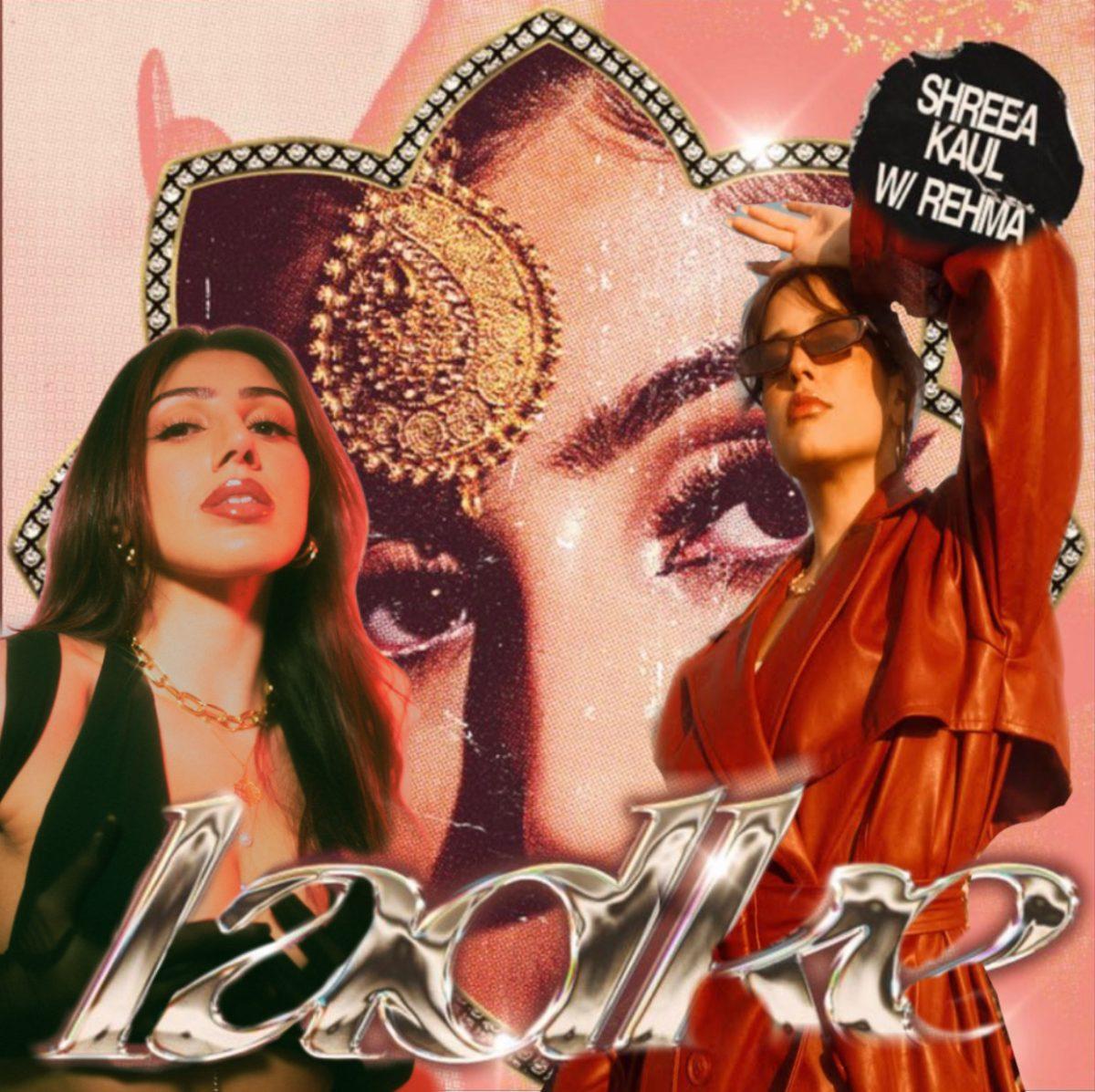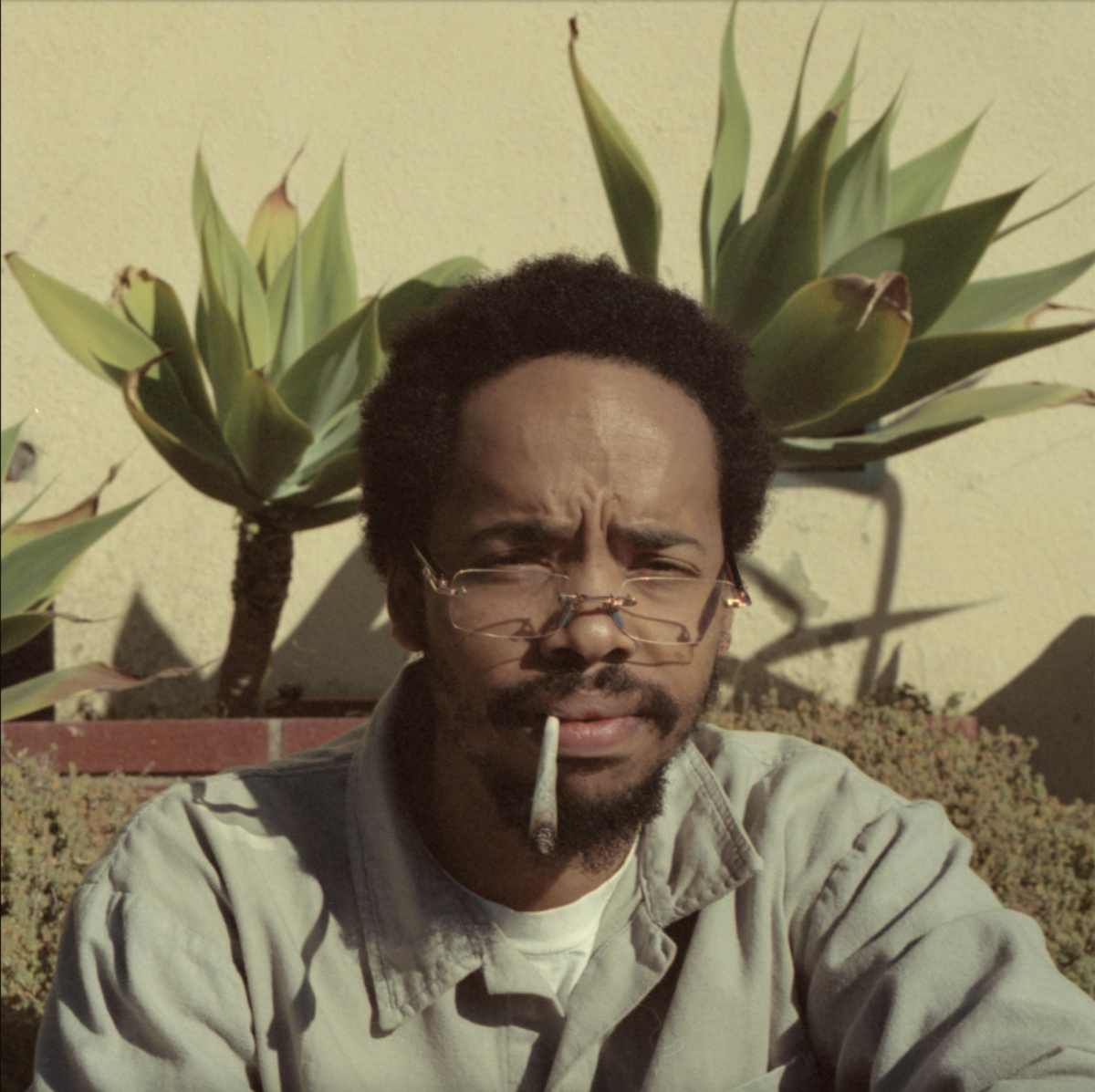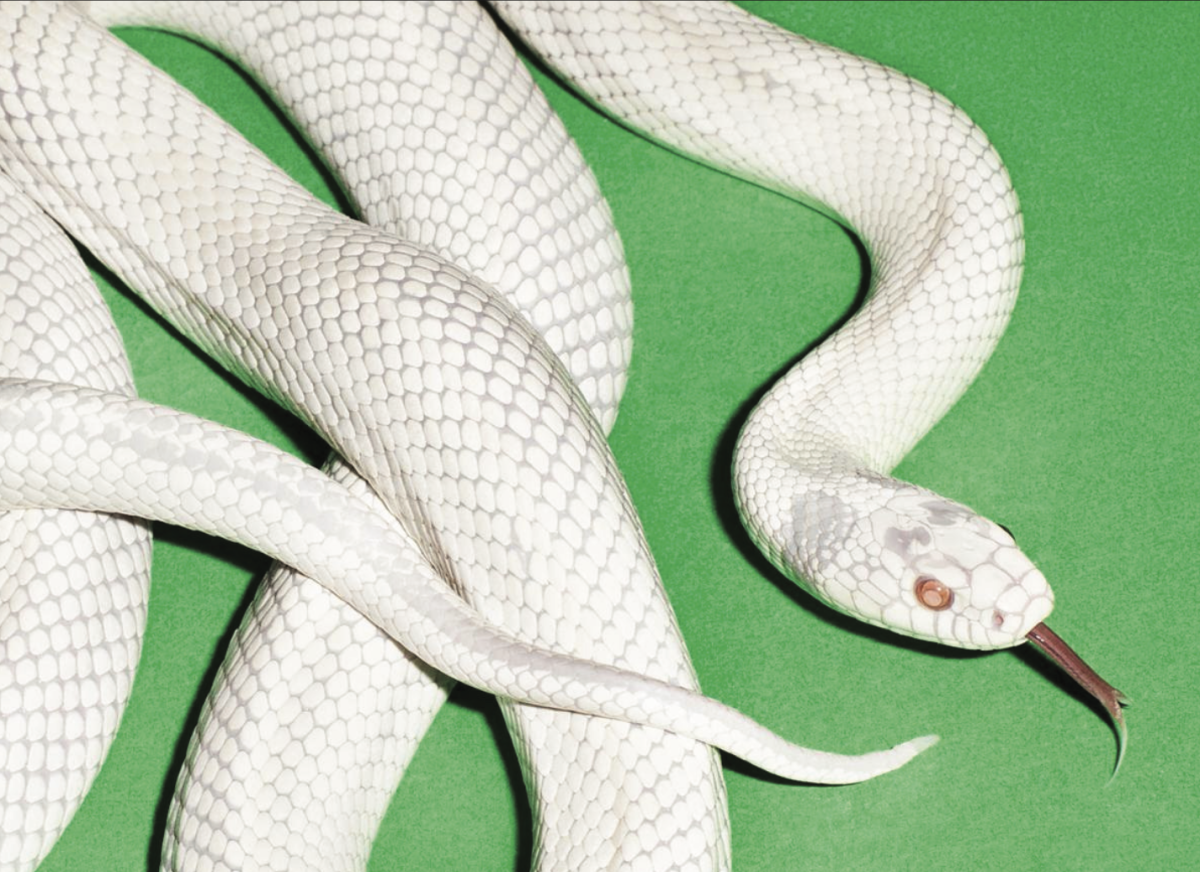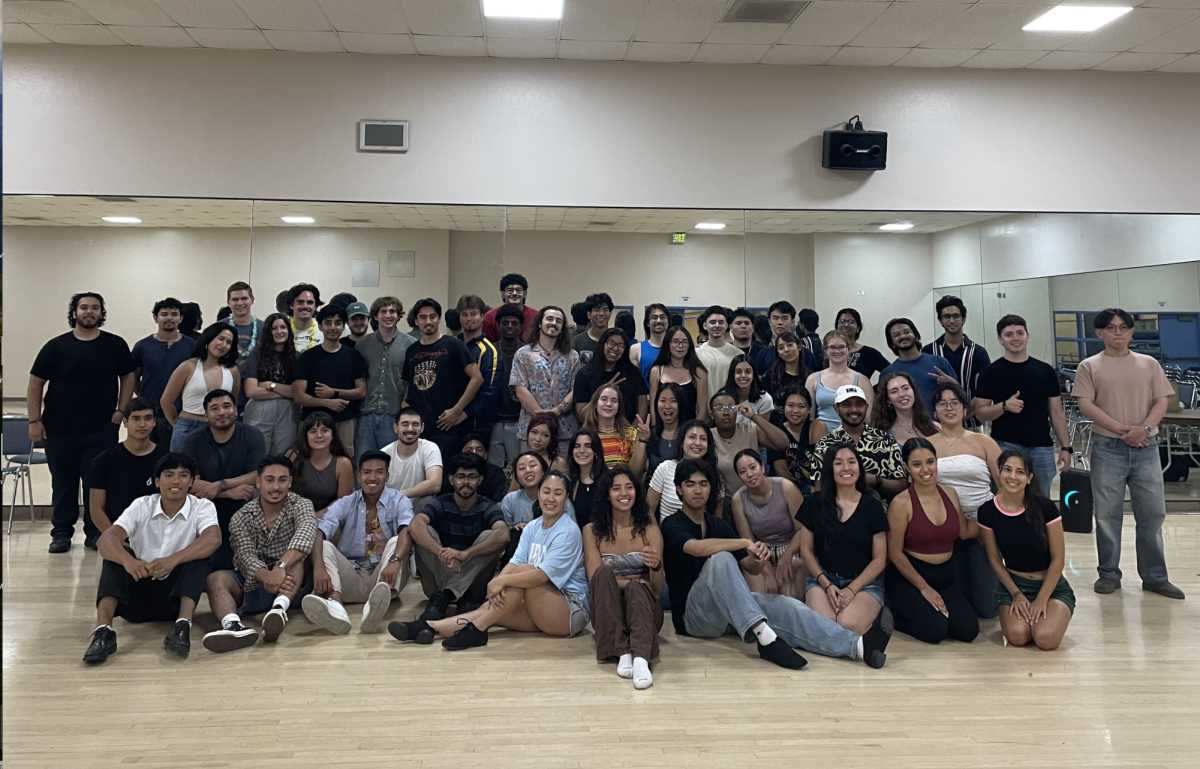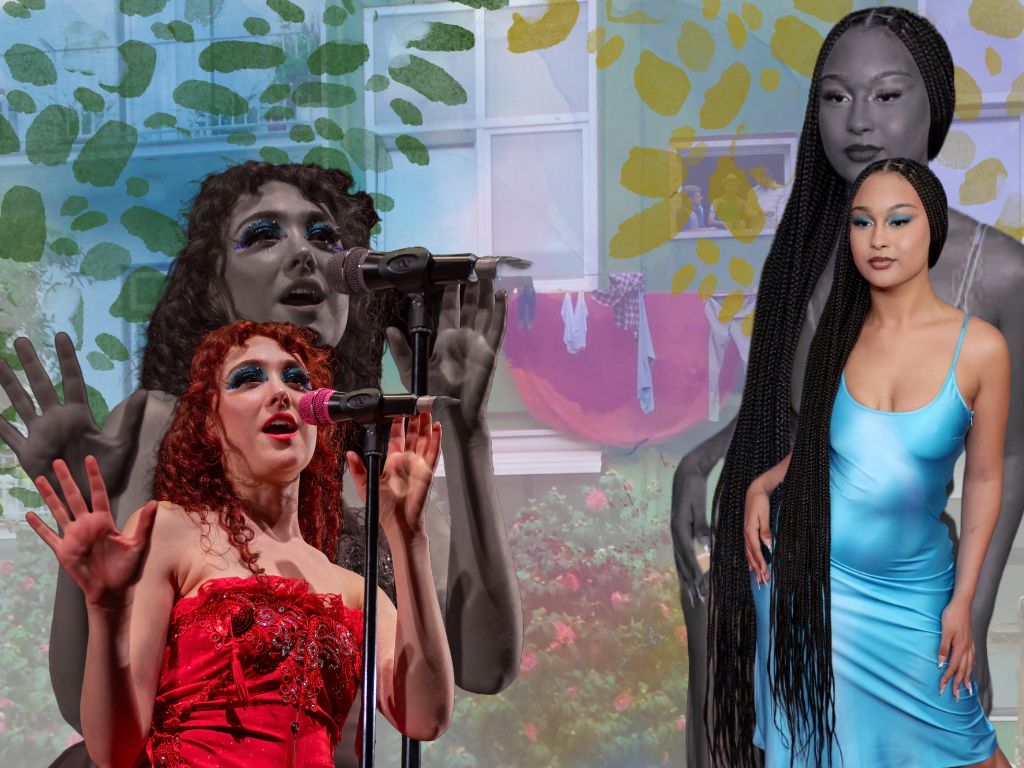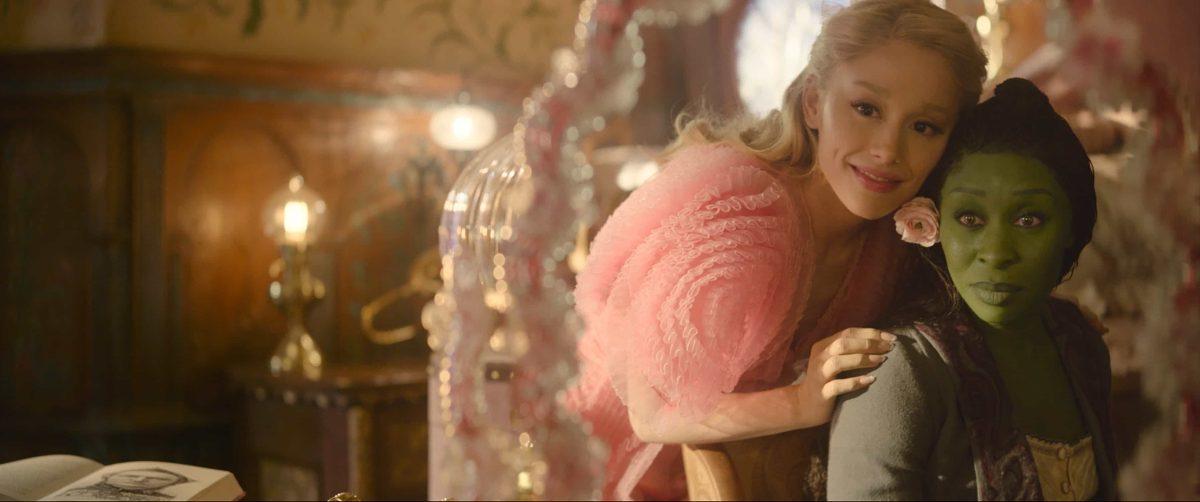“Ladke” is poised to become an anthem for young, South Asian girls.
Singer-songwriters Rehma and Shreea, two South Asian American artists, are proving to the world that brown girls are multifaceted, beautiful goddesses in their latest single that was released on Oct. 12.
Rehma, University of California, Berkeley sociology senior who’s Pakistani American, has been releasing music since 2019. Shreea, who’s Indian American, is an account development representative in Houston and has been releasing music since 2017.
The two artists met in June in hopes of collaborating after finding each other on the video-sharing app TikTok.
Shreea and Rehma are distinct artists and their collaboration authenticates that there’s no single way to be a brown girl.
“[Rehma’s] not as much of a fusion artist and she’s stated that she wants to stay out of that space. And if you hear her in the last hook [of Ladke], she does a lot of ad-libs that are in Hindi as well,” Shreea said in a Zoom call. “I’ve heard so much of her music and I was always curious to see whether she would find a space in fusion that she felt like she could fit and I think the song really helped accomplish that.”
Rehma subtly includes her culture in her music whereas Shreea chooses to make direct references to her Desi roots.
A Desi person is someone of Pakistani, Indian or Bangladeshi descent who currently resides outside of those countries, according to Lexico.com, a worldwide dictionary by Oxford University Press.
Despite an increase in South Asian representation in TV and film, there’s a severe deficit when it comes to music.
Even when there’s representation, it often depicts brown girls as one dimensional. They have overbearing parents, are expected to get good grades and have to help out with the housework.
In Rehma’s 2020 extended play “Mercy,” she’s wearing Pakistani jewelry that draws attention to her culture even though her music doesn’t directly reference her background.
“Shreea is a master [of] blending this Desi fusion with English music and that’s her forte. It was just a perfect opportunity for both of our kingdom of fans, where she’s doing fusion and I’m doing this R&B as a South Asian girl,” Rehma said. “The blend was really cool and I was really grateful to be a part of [that] because I could see how much it touched our community.”
On the other hand, in Shreea’s 2020 album “Seven Deadly Sins,” she fuses classic Bollywood songs with English lyrics.
“I sample certain lyrics or melodies from known Bollywood songs then, yeah, I’m just trying to play on that nostalgia factor but with ‘Envy,’ I think I was introducing a new style to the market with the fusion,” Shreea said.
“Envy,” one of the tracks on her album, featured Hindi lyrics. Similarly, the chorus of Ladke is entirely in Hindi.
Shreea said she wanted to reflect on the double standards many South Asian women face as they are growing up. It is a common feeling for many Desi girls including myself. It was expected that I would be helping my mom in the kitchen and serving our guests.
“[South Asian] girls have so much pressure from society and our families to really have it together. It’s a pretty common Desi-female thing that we’re taught to kick ass at school, like, you’re gonna get married so [you have to] know how to take care of the house,” Shreea said. “The standards for [guys] are so low like if a guy just breathes and exists it’s like you did great.”
The main chorus of Ladke, which means boys in Hindi, translates to “boys, why are they after me? They are all crazy mama’s boys. They are all sons of owls.”
“Sons of an owl” is a common Hindi insult.
Shreea said she got the inspiration from a previous relationship that she had where she was the only one making money.
“The guy was just bumming off of me and he lacked a lot of drive and ambition,” Shreea said. “As far as the hook in Hindi, I just think it was inspired by my parents’ marriage [and] a lot of marriages [in] South Asian culture. A lot of men in Desi culture are very, very, very much mama’s boys so their mom takes care of everything [and] they’re really not sure how to navigate the world on their own.”
Both Shreea and Rehma said they know that feeling so they wanted to give other girls a song to express that discontent.
For brown girls, singing those lyrics at the top of their lungs feels like a release, announcing to the world that they deserve better.
Rehma also recalls the expectations that were placed on her as a brown girl and how music gave her an outlet.
“I’m still very much a rebellious brown girl,” Rehma said. “I mean, there’s no such thing as a traditional sense of a brown girl. There’s not even any sort of monolith that a brown girl has to follow. But there is an expectation of how brown women are expected to act. So it’s just cool to talk about my love life very boldly and talk about smoking weed.”
The English lyrics of Ladke are also pretty gutsy for South Asian girls, especially in a culture where even the slightest bit of intimacy is seen as explicit.
They sing “happily, get more dopamine from a bag of weed” which addresses unsatisfying relationships but they connect all the lyrics back to South Asian culture.
They sing “had me sneaking over to you even on the weekday,” which is relatable for brown girls who always had an earlier curfew than their white peers.
Rehma and Shreea know what it feels like to hide part of your identity away from your community and with Ladke, they wanted to give girls an opportunity to celebrate who they are.
“I don’t think that [the South Asian] narrative is really out there, right, so I don’t think anyone gives us credit. We don’t have anyone that’s talking about the Desi experience of being a put-together woman and having to deal with bottom-of-the-barrel dudes that society just never really set any standards for,” Shreea said. “I think it was important to put this out there, and I don’t think I ever did it with the intention of relating to people but I knew that it would relate to people because it is a universal experience. This was really important for me to do so that other people, especially Desi women can realize that our narrative is finally being shared.”
Although the duo has different approaches to how they want to intersect their culture in their music, both of them have taken up an R&B style of singing and production.
Ladke features a funky bassline as they sing with breathy vocals. The chorus fades into the verses and the beat becomes stronger as the song approaches the chorus once again.
When the Hindi part comes in, listeners are ready to scream the lyrics after awaiting its arrival.
Both Rehma and Shreea emphasize that there is no one way to be a South Asian artist in the music industry. Whether you want to do fusion or take a more pop or R&B route, your experience is valid.
“There are so many different faces [and] styles and people in our community. I just hope that everyone gets a taste [of] that,” Rehma said.
Shreea and Rehma said they are expecting to release the music video of Ladke soon, which features a variety of South Asian people from all different cultures and backgrounds. Their goal is to make sure no Desi girl ever feels alone in her experiences.
“I’m most excited for people to see the guys that we had in the video. There’s such a diverse array of South Asian men like you have your fuckboys, you have your awkward boys, you have your all Desi boys,” Shreea said. “I was really excited to showcase men even though I talked a lot of shit about them in the song. So I wanted to find some type of way to make up for it. The other thing that I’m most excited about is that we kind of take a spin on very traditional Desi concepts and kind of twist them into something that fits the narrative of the song.”
Brown girls will be sneaking out of their houses to dance to Ladke, carefree and inspired to show the world how multifaceted they really are.





































